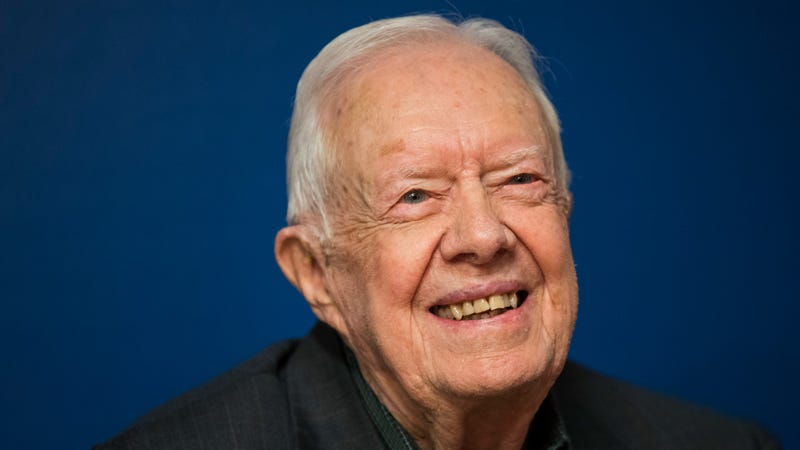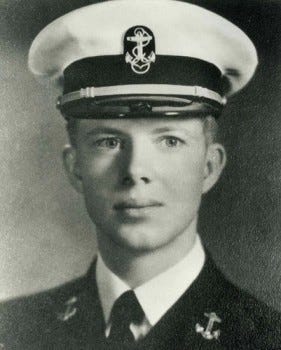
Former President and U.S. Navy veteran Jimmy Carter announced on Feb. 18 that he has entered hospice care and will spend his remaining days at his home in Plains, Georgia.
"After a series of short hospital stays, former U.S. President Jimmy Carter today decided to spend his remaining time at home with his family and receive hospice care instead of additional medical intervention,” the Carter Center said in a statement. “He has the full support of his family and his medical team. The Carter family asks for privacy during this time and is grateful for the concern shown by his many admirers.”

Carter was diagnosed with cancer in 2015 and had a small melanoma growth removed from his liver. Further testing showed cancer had spread to his brain. At the time, Carter said he thought he only had weeks to live, but in December of that year, testing found no traces of cancer.
In December 2019, Carter underwent brain surgery to relieve pressure in his head after falling multiple times.
Born Oct. 1, 1924, in Plains to Bessie and James Cater, Sr., Carter’s family supported his lifelong goal of attending the U.S. Naval Academy. He received his appointment in 1943 and transferred from the Georgia Institute of Technology to Annapolis, Maryland.
Upon his arrival at the Naval Academy in 1943, Carte joined an accelerated wartime program, allowing him to graduate in just three years. He graduated with distinction and a bachelor of science degree in 1946. Carter then deployed aboard USS Wyoming and performed surface ship duties for two years.

He became involved with the Navy’s nuclear submarine programs, serving onboard submarines and aiding in the engineering and electronics repair aboard SSK-1. Carter began nuclear power school in 1953 and hoped to serve as the commanding officer aboard USS Seawolf, one of the first naval submarines to use nuclear power. Those plans changed when Carter learned that his father had died. He received an honorable discharge from service and returned home to help run his family’s peanut farm.
Upon his return home, Carter became a leader within his community, gaining popularity and political experience with multiple positions on county education, library and hospital authority boards.
He was elected to the Georgia State Senate on a platform of racial justice and integration in 1962. After serving as a state senator for two terms, he lost his first gubernatorial campaign in 1966 but won the next election in 1971.
Carter served as the governor of Georgia for one full term. After his time as governor, he turned his eyes toward the presidency. Carter became the 39th president on Jan. 20, 1977.
After leaving office in 1981, he began devoting his time to diplomatic missions and human rights initiatives. He founded the Carter Center in 1982. The non-partisan nonprofit is dedicated to domestic and international policy development and human rights advocacy.
Carter received a Nobel Peace Prize in 2002 “for his decades of untiring effort to find peaceful solutions to international conflicts, to advance democracy and human rights, and to promote economic and social development.”
Carter, 98, is the longest living president. He married his wife Rosalynn on July 7, 1946. The couple has four children.
Reach Julia LeDoux at Julia@connectingvets.com.


